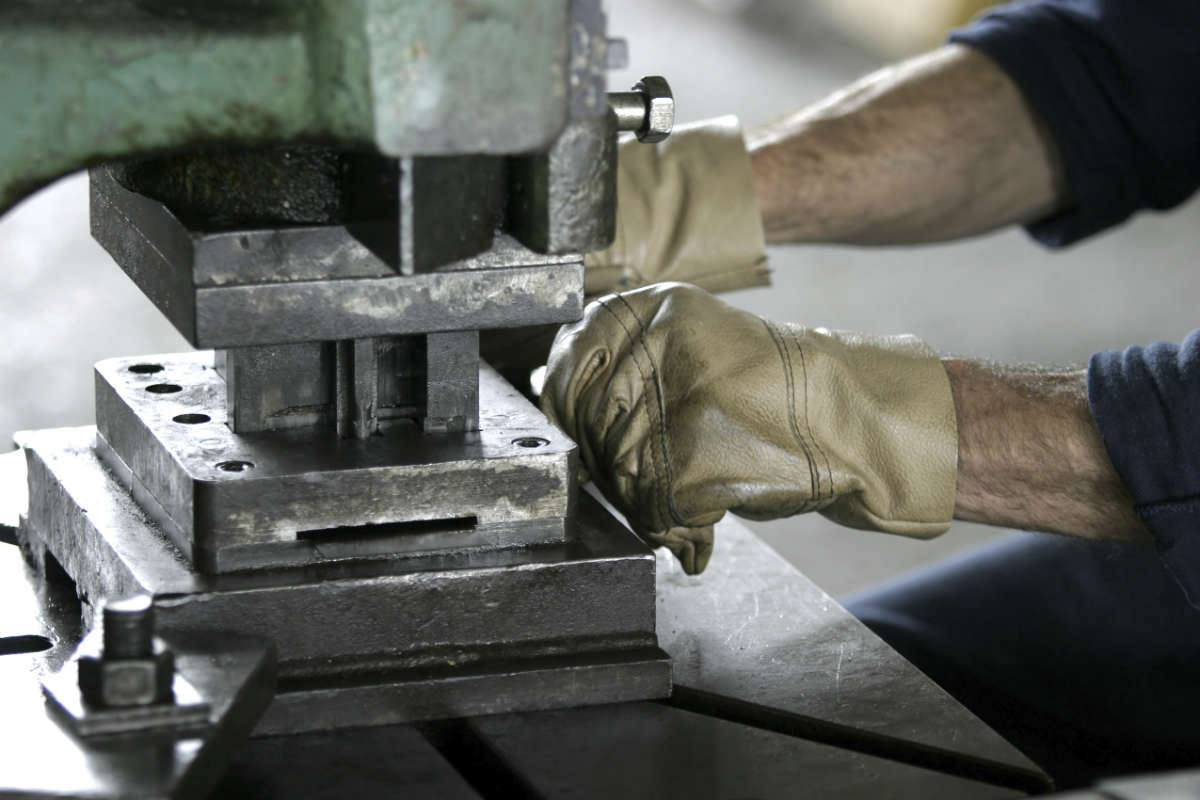There are thousands of different types of machinery and equipment that are used in a work environment, exposing work to many potential injuries.

A worker who suffers work-related injuries is typically not allowed to file a lawsuit against the employer; however, the injured employee may claim benefits under the workers’ compensation system. If the injury has occurred as a result of malfunctioning machinery, a worker may be able to file damages against the manufacturer of the machinery. A Missouri workers’ compensation attorney from The Law Office of James M. Hoffmann can provide guidance for these types of third-party claims.
Types of Injuries Caused by Malfunctioning Machinery
Accidents can happen even when the machine operator is working with extreme caution. This is because of possible defects in the machinery or equipment, and such an accident can lead to serious, even fatal injuries to a worker. There are thousands of different types of machinery and equipment that are used in a work environment. Some of the most common injuries that occur due to defective machinery or equipment include the following:
- Crushed limbs: Normally, all equipment that contains moving parts has safeguards to protect workers from injury. If the equipment is defective or it malfunctions, employees may become injured when they come in contact with the moving parts. Such accidents might cause crush injuries to the fingers, arms, or legs of workers.
- Amputation: Heavy equipment used for cutting, shearing, or moving objects can be a source of severe injuries if any of the equipment safeguards fail.
- Impact injuries: A worker can become severely injured by a piece of equipment that breaks and falls on the employee. The worker can also get injured if a broken piece of equipment causes him or her to fall. This type of accident can cause fractures, blindness, and traumatic brain injuries.
Liability in Work-Related Accidents Caused by Defective Machinery
If an employee gets injured because of defective machinery or equipment, it may be difficult for the victim to build a legal case as it usually depends on the type of malfunction. If it is a manufacturing or design defect, then it would be the liability of the manufacturer. The worker may be eligible to file a third-party claim against the manufacturer. If the machinery became defective due to usage and the employer knew about this and chose not to repair or replace it, then it is the employer who will be liable. The injuries caused by defective machinery can lead to a complex situation. There are certain laws that protect the employer from liability. Under the workers’ compensation system, an injured worker is not allowed to file a lawsuit against the employer for work-related injuries.
St. Louis Workers Compensation Claims Lawyer
An injured worker may need legal help from The Law Office of James M. Hoffmann to pursue a claim and get the compensation for damages he or she needs. Call us today at (314) 361-4300 for a free consultation.
Workplace Injury and Accident Causes
Asbestos Exposure
Asbestos Removal
Second Hand Asbestos Exposure
Sexual Assault Workplace
Physical Assault at Workplace
Workplace Injuries Assembly Line
At Fault Accident
Workplace Attack
Benzene Exposure
Injured on Lunch Break
Building Collapse
Workplace Bullying
Chemical Exposure in the Workplace
Chemical Hazards in the Workplace
Cold Stress in the Workplace
Combustible Dust Explosion
Computer Use
Construction Site Accident
Conveyor Belt Accident
On the Job Injury Cause by Coworker
Crane Accident
Injuries from Desk Jobs
Diesel Exhaust Fumes Exposure
Digging Injury
Breaking Company Policy
Drowning at Work
Workplace Drug Use
Electrical Workplace Accidents
Elevator Accident
Equipment Accident
Ergonomics in the Workplace
Excessive Overtime
Workplace Explosion
Extreme Danger
Fall at Work
Fire in the Workplace
Slicer Accident
Forklift Accident
Walk in Freezer
Gas Pipeline Accident
Hard Work
Workplace Hazardous Substances
Hazardous Equipment in the Workplace
Heavy Machinery Accident
Horseplay in the Workplace
Danger at Workplace
Insomnia in the Workplace
Jumping Accident
Ladder Falls at Work
Loading Dock Accident
Machinery Accident Workplace
Equipment Failure Accident
Mining Accident
Mold in the Workplace
Nail Gun Accident
Workplace Noise
Non Collision Accident
Heavy Objects
Workplace Office Equipment
Opioid Use
Injury at Work Due to OSHA Violation
Overexertion Injuries at Work
Use of Pain Killers
Power Tool Injury
Inadequate PPE
Repetitive Motion Injuries in the Workplace
Mansfield Bar
Scaffolding Accident
Secondhand Smoke in the Workplace
Side Effects
Silica Exposure
Sleep Disorder
Slip and Fall Injuries in the Workplace
Stairs at Work
Struck by a Vehicle
Tar Fumes
Toxic Chemical Exposure
Toxic Fumes in the Workplace
Car Accident While Working
Trench Collapse
Trips at Work
Unsafe Working Conditions
Workplace Violence
Welding Injury
Winter Hazards in the Workplace
Working Shifts
